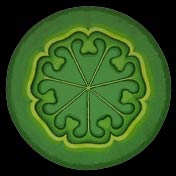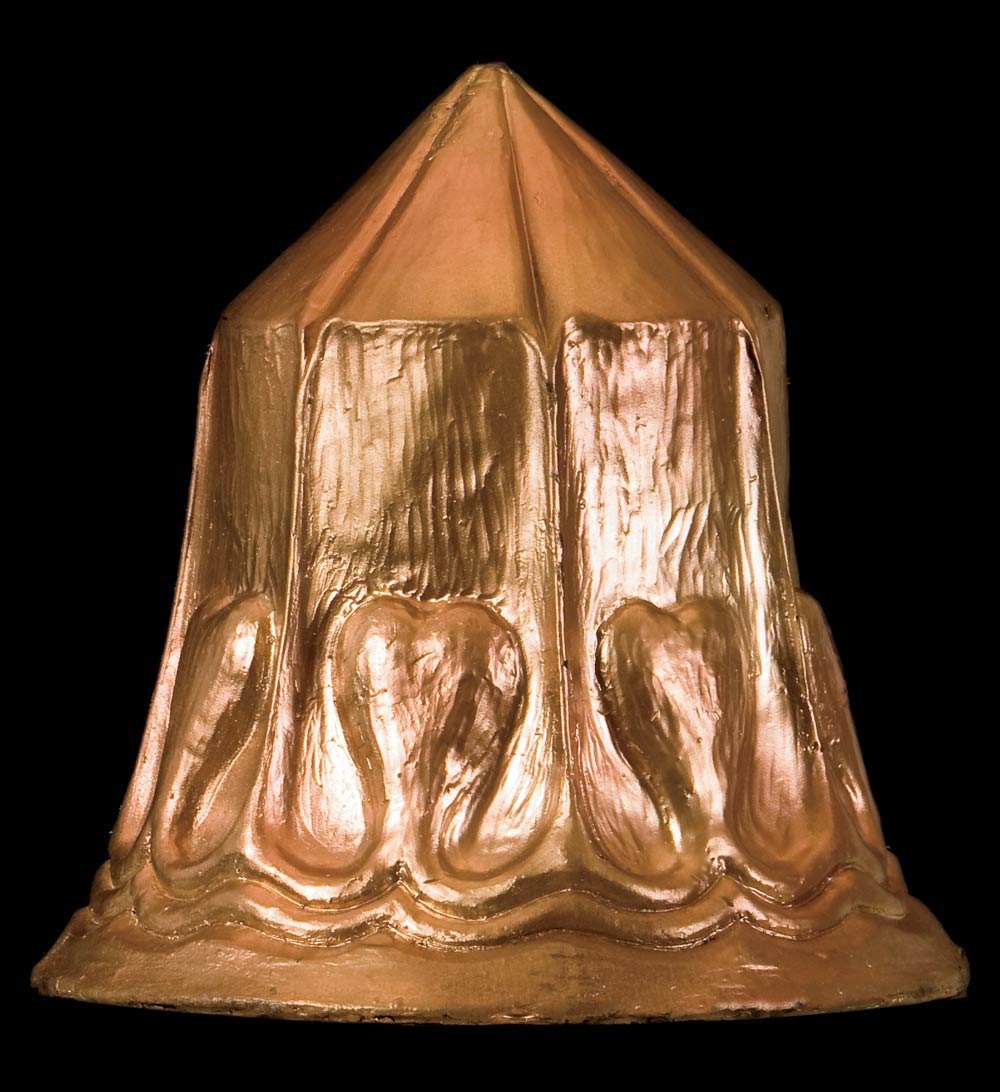(click on image to enlarge)
Size: 9″ tall, 9″ diameter
Weight: 25 lbs
Material: Bell Bronze (Bell Bronze is the purest type of bronze in the bronze family, with at least 20% tin in the alloy. This is the reason that a bronze bell gives you such perfect tone and clarity.)
Color: Gold
Texture: Hand-textured
With the purchase of a bell, Frank includes the unique stand and clapper that he invented specifically to let his bells ring without dampening, as well as a guest lecture and workshop at the purchaser’s location (if purchaser arranges transport, lodging, and meals).
Terms: All shipping on the bells is free. Please allow 4-6 weeks lead time for the bells. If you need to discuss special financing arrangements, please click here to contact Frank directly.
 The Venus Bell is so called because its molded shape is a three-dimensionalization of Rudolf Steiner’s Venus seal, shown at right. The shape of the bell itself is made from the spinning of the seven-sided Chestahedron traced out in time through a full 360 degree rotation.
The Venus Bell is so called because its molded shape is a three-dimensionalization of Rudolf Steiner’s Venus seal, shown at right. The shape of the bell itself is made from the spinning of the seven-sided Chestahedron traced out in time through a full 360 degree rotation.
In 2000 Californian sculptor, Frank Chester, discovered a new seven-sided form with seven points and twelve edges. The first heptahedron of this configuration consists of 4 triangles and 3 quadrilaterals and each of the seven planes has an equal surface area. If this heptahedron is rotated around the vertical axis it forms a bell-like external profile with a cone above a hyperbolic curve. Calling on his experience in art and engineering design, Frank began rigorous mathematical experiments on this form. Using only straight lines that intersect at strategic points he was able to map out the precise measurements of the bell in diagrammatic form.
By constructing sturdy maquettes, connecting the twelve edges, Frank pursued his investigations into further possible transformations of this heptahedron. The appearance of a bell-type figure can easily be observed when spinning the model by hand.Spinning a maquette at high speed in water revealed the phenomenon of a vortex. Unraveling the complexities of the geometric foundation of the Chestahedron reveals and understanding of the structure of bell forms. Following studies using fluid dynamics and the Chestahedron, Frank Chester concludes that bells are the combination of accelerating and decelerating vortices.In June 2010, Freeman College, a part of the Ruskin Mill Educational Trust, cast a new bell for the college. This new bell takes its outline and proportions from the bell-type form created by spinning the Chestahedron model.Referencing the writings of Rudolf Steiner and in recognition of Frank Chester’s work on these design concepts in relation to the geometry of the human heart, the Freeman College bell is called the Heart Bell.

You must be logged in to post a comment.